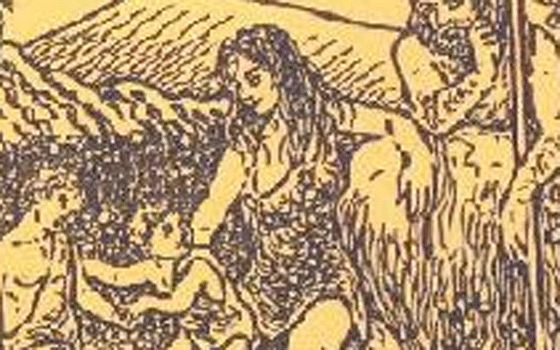Canary Slaves in the Arab World April 17, 2015
Author: Beach Combing | in : Medieval , trackbackIt is sometimes said that the furthest travelled people in the ancient and medieval world were slaves. Consider four points. First, average men and women were not foolish enough to pass beyond the frontiers. Second, when they were foolish enough to travel they often risked becoming slaves (St Patrick, Frumentius… there are many examples). Third, when they became slaves they could be passed around like baggage by their masters and even longer trips were possible. Fourth, long-travelled slaves, because they were physically unusual, very often travelled even further as remarkable curiosities. So if a white European ended up among the Ethiopians in bondage then what better present for the Bantu or the Swahili, say? If an Inuit was dragged to Iceland, the chances that he would have ended up in Trondheim or Gaul must have been high (unless, of course, he died from one of those old world viruses).
In any case, this is by way of prelude to a particularly interesting case of long distance slave travel, that a century later would have been, with the odious transatlantic slave route, not that remarkable, but that in the fourteenth century of our era stands out. In the fifteenth century the Castillians and then the Portuguese discovered and, to use the politest word available, ‘despoiled’ the Canaries and the native population, the Guanches, a Berber people who had perhaps inhabited the archipelago for a millennium. However, it is often forgotten that the Genoese got there before their Iberian cousins. Ibn Khaldun, a fourteenth-century Arab historian, describes the battles between the Genoese and natives in what he called, with a kick back to Greek terminology, the Eternal Isles. In fact, Ibn Khaldun gives us some of out best early evidence for European Atlantic expansion and a few choice sentences about the Stone Age inhabitants of those far off places.
The Genoans gave two of these slaves to Abu Al-Hasan, the Sultan of the Marinids and those unfortunate victims of the first war in European expansion found themselves in what is today Morocco. In fact, the first reliable information that the Arabs had about the Canaries came from these slaves as they learnt Arabic to communicate with their masters. They confessed, inter alia, that they had never heard of Islam on their islands. On Google maps the distance between Tenerife and Rabat, capital of Morocco is two thousand kilometres (via ‘unknown road’). But Ibn Khaldun lived in Tunis, some three thousand five hundred kilometres away. And will some of these Guanches have been sent down to the Nile (4500 kilometres) or Pakistan (8000 kilometres) as curiosities… Other example of ancient or medieval far travelling slaves: drbeachcombing AT yahoo DOT com



